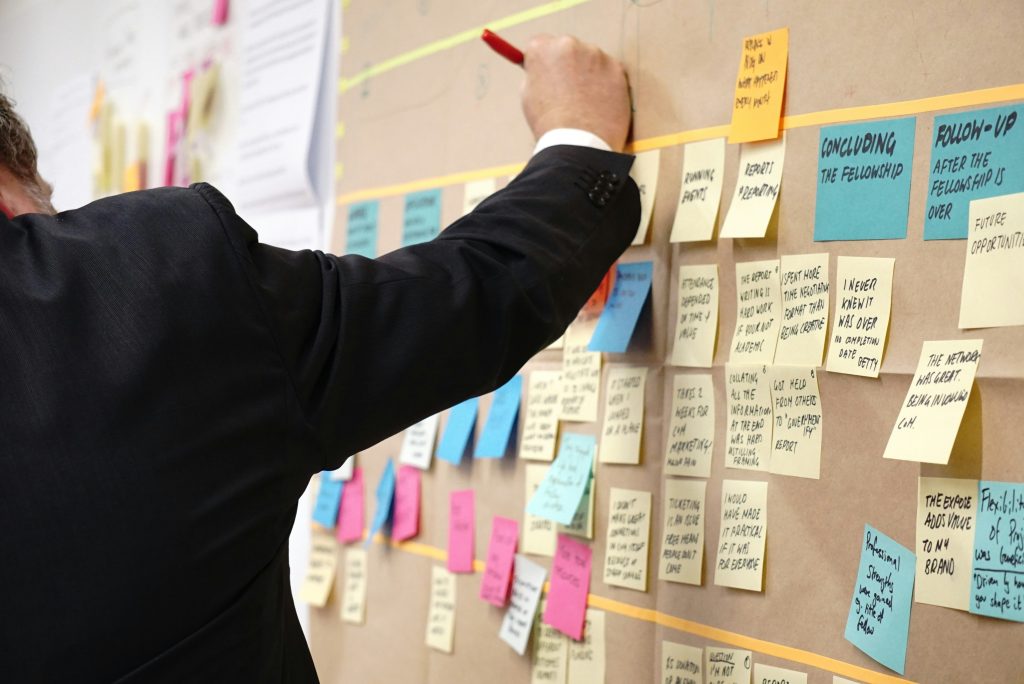In the modern professional landscape, adaptability and continuous learning are crucial for career progression. Online education has emerged as a powerful tool for ambitious professionals, enabling them to obtain advanced qualifications without disrupting their work-life balance. Robert Kennedy College (RKC), in partnership with leading universities such as the University of Cumbria, the University of Gloucestershire, and the University of Salford, provides prestigious online degree programmes for professionals worldwide.

However, simply enrolling in an online degree isn’t sufficient to guarantee career success. The true value of an online qualification lies in how students strategically leverage their learning to enhance their professional prospects. Below are six strategies that, in my opinion, maximise career benefits while studying at RKC.
(1) Define Your Career Objectives Early
When contemplating the pursuit of an online degree, it is essential to establish detailed and clear career goals from the outset. Consider what you wish to achieve—whether it’s advancing in your current job, making a significant career change, launching your own business, or simply enhancing your skills. A well-defined vision of your objectives is crucial. By taking the time to articulate these goals, you can ensure that your educational journey is purposeful and impactful.
RKC’s Advantage:
RKC’s programmes are designed with career progression in mind. The industry-relevant curriculum equips students with practical knowledge that directly addresses professional challenges. The flexibility of the courses allows learners to align their studies with their career objectives.
(2) Develop Industry-Specific Expertise

Specialisation plays a crucial role in career advancement, significantly influencing professional growth. Instead of adopting a generalist approach, which can dilute skill development and the breadth of knowledge, professionals are encouraged to focus on specific niche areas within their industry. By developing deep expertise in these specialised fields, individuals can distinguish themselves in the job market, enhance their employability, and position themselves as invaluable assets to potential employers. This targeted focus not only promotes personal growth but also aligns with the evolving demands of industries that increasingly value specialised skills over a broad yet shallow knowledge base.
How RKC Supports Specialisation:
With specialised programmes in business administration, management, finance, marketing, and legal studies, RKC provides students options that enhance their credibility and marketability in their chosen field.
(3) Implement Learnings Immediately in Your Workplace
Reinforcing academic knowledge is crucial for online learners, and one of the most effective methods to achieve this is by integrating theoretical concepts into practical, real-world business scenarios. By doing so, learners can bridge the gap between theory and practice, enhancing their understanding and retention of the material. Additionally, online learners are encouraged to leverage their coursework by actively implementing acquired strategies and insights within their current job roles, thereby not only enriching their professional experience but also contributing positively to their workplaces. This application of knowledge fosters a deeper comprehension of course content and equips learners with valuable skills that are directly applicable in their careers.
RKC’s Practical Learning Approach:
RKC ensures that students engage with case studies, practical applications, and project-based learning that align with their workplace challenges. This approach enables professionals to demonstrate immediate value to employers, thereby enhancing their career trajectory.
(4) Build a Strong Professional Network

An online degree offers more than just the acquisition of knowledge; it serves as a means to establish valuable connections with industry professionals. These connections are crucial as they can provide insights, mentorship, and access to new job opportunities that may not be readily available otherwise. In today’s competitive job market, leveraging these relationships can significantly enhance one’s prospects for career advancement and professional growth.
Networking Through RKC:
RKC has a global student community, comprising executives, entrepreneurs, and industry leaders. Engaging with peers through online forums, group projects, and alumni networks cultivates valuable connections that may lead to job opportunities and career mentorship.
(5) Showcase Your Qualifications Effectively
Once you have earned your degree, understanding how to highlight your qualifications is crucial. Update your CV, LinkedIn profile, and professional portfolios to reflect your new expertise and credentials.
RKC’s Global Recognition:
A degree from RKC, in partnership with reputable British universities, possesses international credibility, rendering graduates exceptionally competitive in global job markets.
(6) Cultivate Leadership and Strategic Thinking

Career advancement is increasingly influenced by an individual’s leadership capabilities. Professionals seeking to progress in their careers can significantly benefit from enrolling in an online degree programme specifically designed to enhance their strategic thinking and leadership skills. These programmes not only focus on theoretical knowledge but also emphasise practical applications, enabling participants to develop a unique skill set that distinguishes them in today’s competitive job market. By refining these essential competencies, professionals can better position themselves for leadership roles and new opportunities within their organisations and industries.
RKC’s Leadership-Centric Approach:
The curriculum at RKC places a strong emphasis on leadership development, equipping students with essential decision-making, negotiation, and strategic planning skills required for managerial and executive roles.
Turning Your Online Degree into Career Success
Completing an online degree at Robert Kennedy College is a strategic step towards professional excellence. By establishing clear goals, networking effectively, demonstrating qualifications, and engaging in continuous learning, graduates can optimise career benefits and accelerate professional growth.
RKC’s commitment to flexibility, innovation, and career-focused education ensures that students emerge equipped with the knowledge, skills, and connections necessary to thrive in competitive job markets. If you’re ready to transform your career, an online degree at RKC serves as your gateway to success.
If you’re prepared to elevate your career, delve into our list of programmes and embark on your journey today at Robert Kennedy College. You could also chat live with our team of Education Advisers on WhatsApp, who can look at your profile and give you some advice.



































